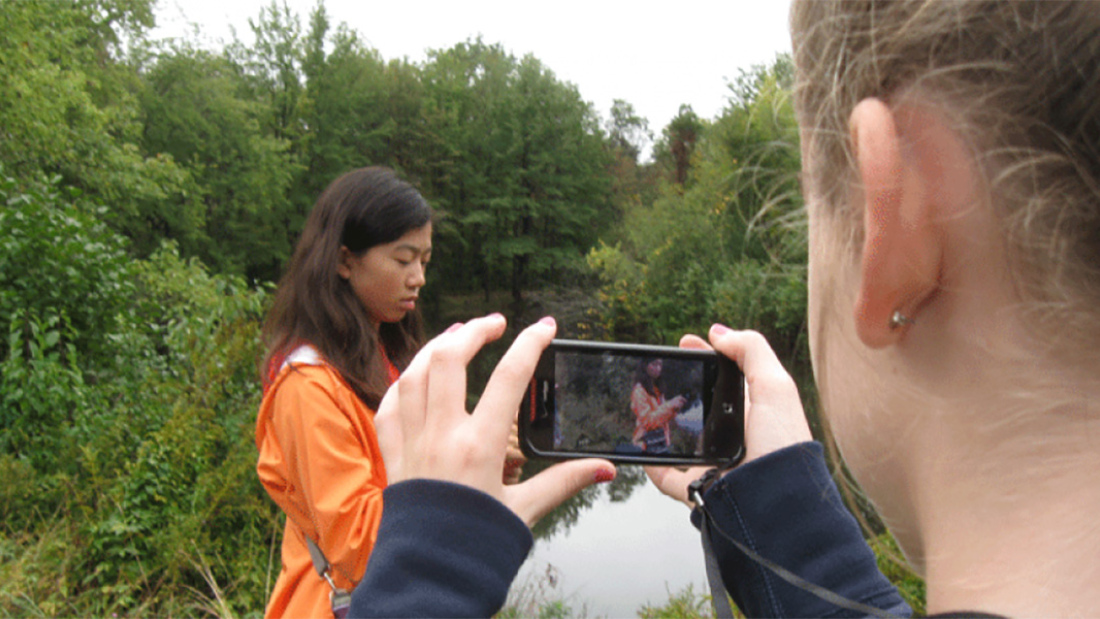Smart Technology — to Aid Human-Powered Learning

One of many dilemmas of teaching in the modern world is figuring out how to use the tremendous advances in technology as a means of engaging students in authentic learning experiences. At HGSE, Professor and STEM pioneer Chris Dede has long been a believer in the power of technology to transform instruction, and his work in understanding the promise of augmented and virtual realities and other innovations has often led the way.
In a pioneering advancement in the way we teach and learn in STEM and beyond, Chris Dede and Tina Grotzer have helped to create a new way for students to engage with the world.
"I look at problems in education that are persistent and challenging," he told Usable Knowledge, "and work my way back to the kinds of pedagogy, content, assessment, teacher professional development, parental input, and other variables involved to see if there might be a way that technology could make a difference."
As a result, Dede’s work is not limited to the code and cables of a device, but it extends into the ways students and teachers interact with one another and their environment. Dede teamed up with fellow HGSE faculty member and cognitive scientist Tina Grotzer, whose work focuses on complexity, learning science, and instructional design, to form EcoLearn — a research group that developed a series of curricula (consisting of ecoMUVE, ecoMOBILE, ecoXPT, and ecoMOD) that use technologies like virtual reality to help students explore complex relationships within ecosystems.
In these immersive virtual environments, students gather evidence and data, conduct experiments, make inferences, and offer possible solutions to problems. The ecoMOBILE curriculum even allows students to do this in their physical environment. "I've tagged along on these field trips and have seen how the technology actually immerses them more in the surroundings, rather than distracting them," Grotzer told Smithsonian magazine. "On a regular field trip, if a student had a question they'd have to leave that moment that spurred the question and go ask the teacher. The teacher would be facilitating the needs of 30 kids. This way they can find the answer themselves and stay in the moment, stay engaged with what they're looking at."
The EcoLearn Project has produced curricula and programs that engage and motivate students in their classrooms through partnerships with local schools, including those in Cambridge, Attleboro, Boston, and Everett, Massachusetts, as well as non-local schools in Arizona and Connecticut. As Cambridge science teacher David Suchy told the Harvard Gazette, “The kids loved it. … They saw things they’d never seen or thought of before… It really meets [them] where they’re at. It looks like a lot of electronic games they’ve played, so there’s an instantaneous connection. Sometimes, they’re learning things about ecology without even realizing it.”
The program’s success has been recognized nationally. The ecoMUVE curriculum won first place in the Interactive Category of the Immersive Learning, awarded by the Association for Educational Communications and Technology in 2011. EcoMOD was recently nominated in the People’s Choice Voting Round of the National Science Foundation’s STEM Diversity and Inclusion Video Exhibition Challenge.
But the focus of the EcoLearn projects is not just on teaching kids how to be skilled scientists, but also on how to be caring members of a community. “Our projects take a stance. They're not just about understanding," Dede said. "There's a values dimension of it that's important and makes it harder to teach. This is a good challenge for us.” – Emily Boudreau
